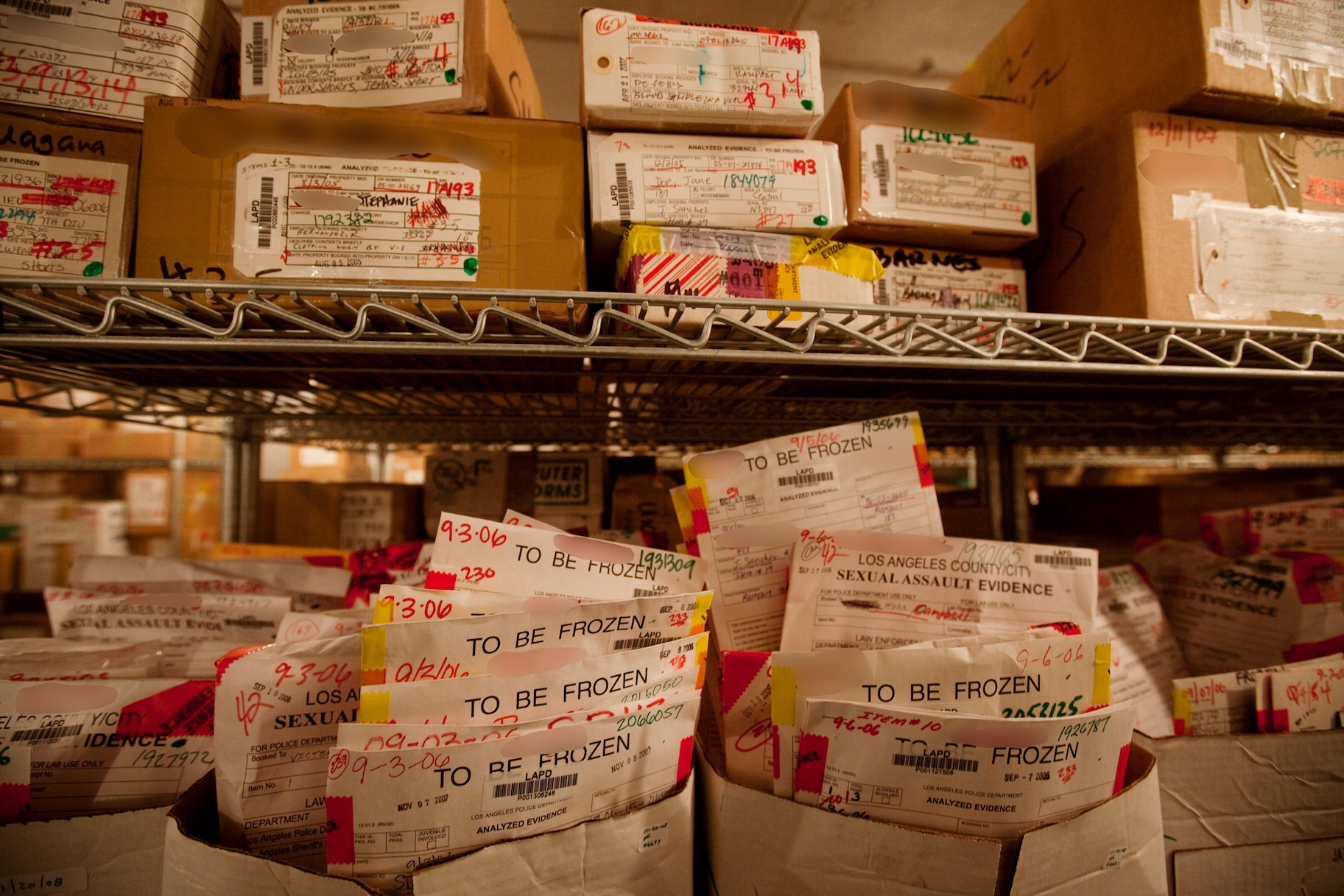Create a free profile to get unlimited access to exclusive videos, breaking news, sweepstakes, and more!
Decades Of Backlogged Rape Kits Are Finally Being Tested. Now What?
“Do we call up a victim and say, ‘Remember that rape from 20 years ago?’” asked a police officer.

As social awareness of the ubiquitousness of sexual assault becomes a discussion topic accross the country, a far more obscure issue pertaining to the widespread mishandling of sexual violence is now receiving some much-needed attention. Decades worth of rape kits, which number in the tens of thousands, are finally being tested. But now a bigger question is presenting itself: what are the next steps in dealing with the results? An extensive Washington Post report by writer Jessica Contrera details the substantial issues surrounding the rape kits.
Rape kits are essentially a collection of evidence obtained by investigators from a victim shortly after a sexual assault occurs that contain photographic and DNA evidence. Because there were no national requirements on how this evidence should be handled or tested (leaving individual police departments to decide how to manage them), an overwhelming amount of rape kits began piling up, with a substantial amount receiving no attention whatsoever: there were about 17,000 untested kits in New York City, 6,000 in Detroit, and 11,000 in Detroit, Los Angeles, and Memphis each.
Pressure from activists has compelled politicians to take action and create more specific regulations to address the problem. However, once the kits receive the proper DNA testing, many are unsure of what the results will actually mean for both victims and perpetrators.
The problem with what to do with the tested rape kits is so thorough that police departments are now struggling with how to go about contacting the names connected with the sometimes decades-old evidence.
“Do we call up a victim and say, ‘Remember that rape from 20 years ago?’” asked Lt. Patrick Harris of the Virginia Beach Police Department, who has been involved in debates about the appropriate means of notifying the victims of the status of their kits. “ ‘Well, we’ve got the DNA test back, but we still can’t do anything with it.’"
The city of Houston, Texas has dealt with the problem by setting up a hotline for victims to check on the status of their kits. Victims were notified if the evidence resulted in something that may be "actionable."
“What’s at stake is the well-being and mental health of sexual assault victims,” says Noël Busch-Armendariz, a researcher who was involved in Houston’s process. “You never know where people are in their lives and what support systems they have or don’t have ready for them.”
State by state statutes of limitations on many of the cases — which are often in flux due to ever-changing regulations on the matter — remain another problem, meaning that despite compelling evidence many of the cases may never face any kind of prosecution.
Although the debate about handling rape kits has existed since long before the burgeoning #MeToo movement, advocates associated with the recent wave of feminist activism have stressed the importance of handling rape kits with efficiency and sensitivity.
"The backlog of untested DNA rape kits sends an unambiguous message to both survivors and perpetrators," writes Eileen M. Decker in an OpEd on The Hill. "To the survivors it discourages the reporting of sexual assaults because crucial and compelling evidence is ignored. Tragically, it also reinforces the culture of silence that has long surrounded this type of crime by telling victims that their crimes do not matter. To perpetrators, it says, you have impunity to commit a violent act. These messages are not acceptable."
[Photo: Getty Images]














